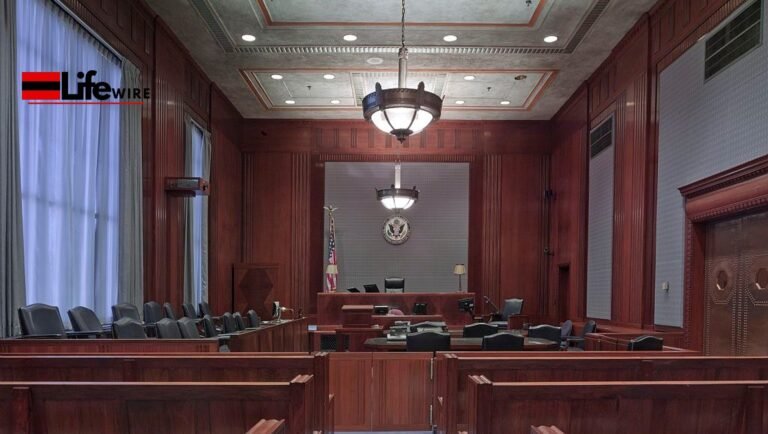Introduction
The University of Metaphysical Sciences (UMS) has been a topic of controversy in recent years, specifically due to legal demanding situations and complaints. As an organization imparting tiers in metaphysical research, spirituality, and holistic healing, UMS has attracted both committed followers and skeptical critics.
This article provides an in-depth examination of the University of Metaphysical Sciences lawsuit, inspecting the allegations, criminal consequences, and broader implications for opportunity education establishments. Whether you are a present-day pupil, alumnus, or truly curious approximately the case, this guide covers everything you want to know.
What is the University of Metaphysical Sciences?
Before diving into the lawsuit, it’s essential to understand what UMS is and what it offers.
History and Background
The University of Metaphysical Sciences was founded by Dr. Christine Breese in the early 2000s. It offers online degree programs in metaphysical studies, which include:
Bachelor’s, Master’s, and Doctorate stages in Metaphysics
Courses on meditation, power restoration, psychic improvement, and non-secular counseling
UMS markets itself as a permitted organization, even though its accreditation comes from non-conventional bodies not recognized by the U.S. Department of Education.
Controversies Surrounding UMS
Despite its reputation amongst non-secular seekers, UMS has faced criticism over:
Accreditation claims (misleading college students approximately the legitimacy)
Degree recognition (whether or not employers or other institutions take delivery of UMS stages)
Tuition and refund rules (allegations of hidden charges or problems acquiring refunds)
These problems eventually led to legal action against the university.
The University of Metaphysical Sciences Lawsuit: Key Details
Allegations Against UMS
The lawsuit in opposition to UMS stemmed from several complaints, along with:
False Accreditation Claims
Plaintiffs alleged that UMS misrepresented its accreditation reputation, leading students to consider that their levels might be broadly identified.
UMS is authorised with the aid of the World Metaphysical Association (WMA) and the International Metaphysical Practitioners Association (IMPA), but those are not diagnosed via the U.S. Department of Education or mainstream educational institutions.
Deceptive Marketing Practices
Former students claimed that UMS exaggerated job potentialities and degree validity.
Some students stated trouble shifting credit to traditional universities.
Refund and Enrollment Issues
Complaints covered hidden fees, the issue of chickening out, and the refusal to provide difficulty refunds for unsatisfied college students.
Legal Proceedings and Outcomes
The lawsuit won attention in alternative training circles, with several former college students coming forward. While a few instances have been settled out of court, others have caused:
Revised disclaimers on UMS’s website concerning accreditation.
Policy modifications on refunds and enrollment terms.
Increased scrutiny of similar unaccredited establishments.
Impact on Students and Alumni
Some graduates discovered that their stages are not accepted in professional settings.
Others, specifically in holistic restoration fields, mentioned a hit career notwithstanding the debate.
The lawsuit triggered discussions about the law in metaphysical education.
Broader Implications for Alternative Education
The University of Metaphysical Sciences lawsuit highlights key problems in unaccredited higher education:
Lack of Government Oversight
Many spiritual and metaphysical schools perform without conventional accreditation.
Students need to research very well earlier than enrolling in such applications.
Ethical Concerns in For-Profit Spiritual Education
Some institutions prioritize earnings over academic pleasant.
Transparency in accreditation and task potentialities is essential.
The Future of Metaphysical Degrees
Will more guidelines be imposed on alternative schooling?
Can metaphysical studies gain wider educational recognition?
FAQs
Can I use a UMS degree for employment?
It relies upon the sphere. Some holistic restoration and non-secular counseling practices might also be given it, but traditional employers or licensed professionals won’t.
What became the outcome of the lawsuit?
Some instances brought about policy modifications at UMS, which include clearer disclaimers about accreditation and refund modifications.
Are there similar complaints in opposition to other metaphysical schools?
Yes, different unaccredited religious institutions have confronted legal demanding situations over misleading claims.
Should I enroll in UMS notwithstanding the lawsuit?
Prospective students should research thoroughly, take a look at accreditation, and don’t forget their professional desires before enrolling.
Conclusion
The University of Metaphysical Sciences lawsuit serves as a cautionary tale for college students thinking about opportunity training paths. While UMS gives precise non-secular getting to know possibilities, the felony challenges highlight the importance of transparency, accreditation, and ethical practices in higher education.


